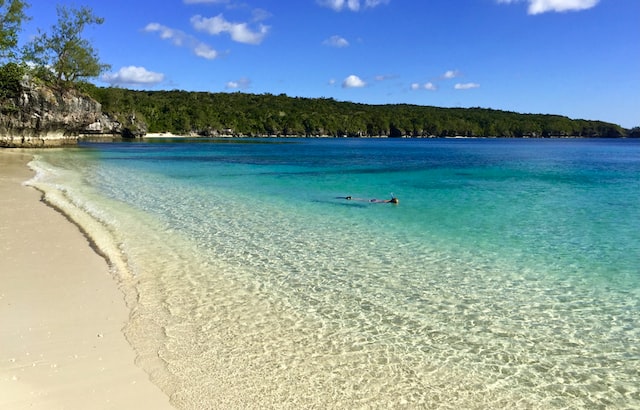New tales of the South Pacific: Vanuatu’s fight for climate justice

At one time, the words “South Pacific” were synonymous with the Rodgers and Hammerstein hit musical based on James A. Michener’s Pulitzer Prize–winning 1947 book Tales of the South Pacific. To say “South Pacific” was to recall golden oldies such as I’m Gonna Wash That Man Right Outa My Hair, Some Enchanted Evening and Younger Than Springtime.
 South Pacific came to symbolise a world quite different from everywhere else, evoking highly coloured images of shimmering sapphire lagoons, white sandy beaches, lush green forests and exotic wildlife.
South Pacific came to symbolise a world quite different from everywhere else, evoking highly coloured images of shimmering sapphire lagoons, white sandy beaches, lush green forests and exotic wildlife.
No longer.
Now, we think of the South Pacific as imperilled by climate change, a world that faces an existential threat. Prime minister Bob Loughman of Vanuatu, the country most at risk according to the UN, has described the effects of climate change on the South Pacific region as follows: “Across small islands in the Caribbean and the Pacific, we are already seeing higher and stormier seas, ocean heatwaves and acidifying seas lethal to marine life, and storms strong enough to wipe out an island’s entire agricultural production”.
But Vanuatu isn’t giving up. For months it’s waged concerted battle for climate justice, leading a unique international effort that is unmistakably gaining momentum. On February 20, the tiny South Pacific nation joined with 17 other countries in the Global North and South to table a UN resolution that requests an advisory opinion from the International Court of Justice (ICJ) on human rights and climate change.
The ICJ is the UN’s principal judicial organ and even though its opinions are non-binding, they will have moral authority. (Click here to read my openDemocracy piece Voices from Vanuatu: life on the climate crisis frontline.)
The group of countries that have tabled the draft resolution is strikingly diverse. It includes rich and poor, those vulnerable to the climate crisis and those that have traditionally emitted greenhouse gases. The list is as follows: Angola, Antigua and Barbuda, Bangladesh, Costa Rica, Germany, Liechtenstein, Federated States of Micronesia, Morocco, Mozambique, New Zealand, Portugal, Romania, Samoa, Sierra Leone, Singapore, Uganda, Vanuatu, Vietnam.
The initiative is commendable, according to the Center for International Environmental Law, a Geneva-based nonprofit environmental law firm, because it t will help clarify “what international law requires of states in the face of the climate crisis, and the legal ramifications of failing to meet those obligations”.
The next turning point on the long road to climate justice will come in late March or early April. That’s when Vanuatu expects the resolution to be adopted by the UN General Assembly.
Between now and then, the world will be watching to see who will co-sponsor the resolution, thereby nailing their colours firmly to the climate mast. Or not.
Also read:

